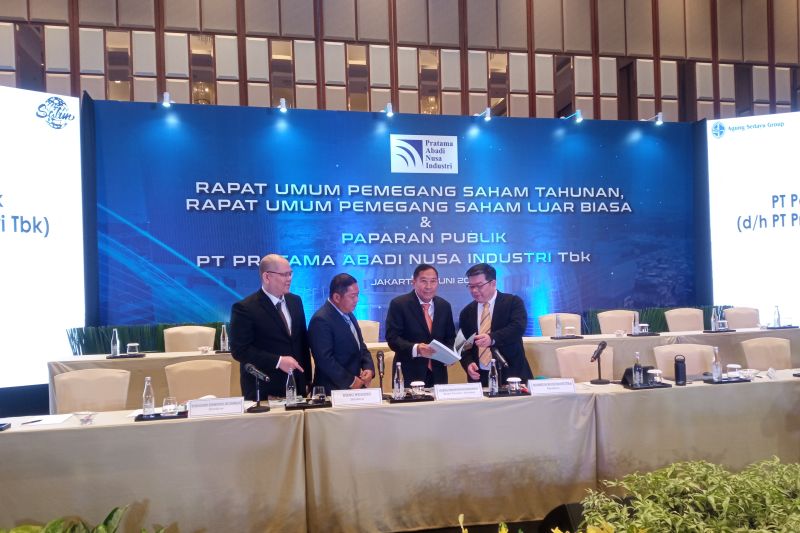
The landscape of international competition is constantly shifting, and nations are increasingly striving to enhance their positions on the world stage. This evolving scenario reflects the intricate dynamics of economic development, policy reforms, and investments in human resources. As countries adapt to the changing global environment, their efforts to innovate and improve their overall performance become critical to achieving sustainable growth.
Recent analyses have highlighted the impressive advancement of a certain nation, showcasing its determination to elevate its socioeconomic stature. Key indicators reveal a transformation driven by strategic initiatives, fostering a climate ripe for entrepreneurship and attracting foreign investments. This remarkable journey is a testament to effective governance and the relentless pursuit of excellence across various sectors.
With a keen focus on infrastructure development, technological integration, and education, the aforementioned country is redefining its identity in the international arena. By prioritizing these essential elements, it has succeeded in creating a more comprehensive framework for progress. As a result, the nation is not only enhancing its internal capabilities but also gaining recognition and respect among peers worldwide.
The achievements thus far serve as a powerful reminder of the potential within emerging economies. The commitment to continuous improvement and adaptation positions the country as a formidable player in various industries. As the global landscape continues to unfold, the story of this nation’s evolution offers valuable insights into the factors that contribute to a successful competitive strategy.
Indonesia’s Advancement in Global Competitiveness
The recent progress observed in the index measuring economic and institutional performance reflects a nation’s commitment to enhancing its strategic position in the global landscape. Significant improvements across various sectors showcase the determination to foster innovation, strengthen infrastructure, and build a more resilient economy capable of attracting investments.
Key factors contributing to this noteworthy evolution include effective government policies, investment in technology, and a skilled workforce prepared to meet the demands of an ever-changing market. The emphasis on education and research not only boosts local industries but also encourages international partnerships, creating a dynamic environment conducive to sustainable growth.
Furthermore, the rise in competitive stature serves as an incentive for businesses to engage and flourish within a vibrant ecosystem. By leveraging natural resources and enhancing trade relationships, the country is poised to capitalize on its geographical advantages. This holistic approach ensures that all sectors work synergistically, paving the way for a prosperous future.
Key Factors Behind Indonesia’s Growth
The remarkable advancement observed in recent assessments can be attributed to a multitude of interrelated elements that enhance the nation’s overall potential. These components work in tandem to create a thriving ecosystem conducive to robust development and sustainability.
One primary factor is the country’s strategic location, which serves as a vital hub for trade and investment in Southeast Asia. The expansive archipelago benefits from advantageous maritime routes, facilitating easier access to key markets around the world.
|
Factor |
Description |
|---|---|
|
Investment in Infrastructure |
Significant enhancements in physical structures have improved connectivity and efficiency, attracting both domestic and foreign investments. |
|
Diverse Economy |
A wide range of sectors, including agriculture, manufacturing, and technology, contributes to economic resilience and growth potential. |
|
Young Workforce |
A large and dynamic population provides a steady stream of labor, fostering innovation and entrepreneurial ventures. |
|
Government Policies |
Proactive measures aimed at encouraging investment and enhancing business environments create favorable conditions for growth. |
These pivotal aspects not only facilitate immediate economic advancements but also lay the groundwork for long-term strategies aimed at sustainable growth and development. Emphasizing collaboration, innovation, and resilience, the nation is positioned to navigate future challenges while seizing emerging opportunities.
Comparative Analysis with Regional Rivals
This section delves into an evaluation of how a specific nation has positioned itself amid its peers in the Southeast Asian landscape. Through a meticulous examination of various key performance indicators, insights can be gleaned regarding strengths and weaknesses in comparison to neighboring countries. Such an analysis is essential for understanding the broader implications of economic and social progress within the region.
Strengths and Opportunities
One notable advantage lies in the nation’s strategic location and abundant natural resources, which facilitate trade and investment opportunities. Additionally, a young and dynamic workforce positions the country favorably against its rivals. Such demographics, coupled with increasing digital adoption, present substantial growth potential in emerging industries, elevating its stance amongst regional players.
Challenges and Areas for Improvement
Conversely, challenges persist that could hinder further advancement. Issues such as infrastructure deficits and regulatory barriers require attention to ensure sustainable development. Addressing these obstacles is crucial for enhancing the nation’s standing and global perception. By focusing on innovation and education, the country can better align itself with the best practices observed in the region.
Ultimately, through this comparative lens, it becomes evident that while there are significant strides made, continuous efforts are vital to maintain and enhance its position in the competitive landscape of Southeast Asia.
Impact of Government Policies on Economy
Government actions play a crucial role in shaping the economic landscape of a nation. The strategies implemented can either foster growth or hinder development, influencing various sectors and the overall stability of the financial environment.
Effective policies often lead to:
-
Enhanced investment opportunities, stimulating both domestic and foreign capital influx.
-
Improvement in infrastructure, facilitating smoother business operations and logistics.
-
Creation of jobs, reducing unemployment rates and increasing household income.
-
Support for innovation and technologies, promoting competitiveness in a rapidly evolving market.
Conversely, poorly designed policies may result in:
-
Increased regulatory burdens, discouraging entrepreneurship and risk-taking.
-
Economic instability through inconsistent fiscal measures, leading to uncertainty in business planning.
-
Widening income disparities, which can cause social unrest and decrease consumer confidence.
-
Neglect of essential services and sectors, eventually slowing down overall economic progress.
In summary, the effectiveness and foresight of government policies are paramount to ensuring a robust and resilient economy, ultimately determining the nation’s prosperity and its place on the international stage.
Technology and Innovation in Indonesia
In recent years, advancements in technology and innovative solutions have played a crucial role in transforming various sectors. This evolution not only enhances economic growth but also contributes to improving overall living standards. Entrepreneurs and established companies are increasingly leveraging modern tools to address local challenges, making strides in creativity and efficiency.
Emerging Startups and Digital Transformation
The startup ecosystem is experiencing significant growth, fueled by a young, technologically savvy population. Many emerging companies are focusing on addressing pressing issues within communities, offering digital services that enhance accessibility. This wave of entrepreneurship is supported by a range of accelerators and funding options, creating a vibrant atmosphere for innovation.
Government Initiatives and Support
Authorities are taking proactive measures to foster innovation and technological development. Various programs have been introduced to support research and development, while efforts to improve infrastructure bolster connectivity. By creating a favorable environment for innovators, the government aims to solidify the foundation for sustainable growth and a diversified economy.
Challenges Facing Indonesia’s Economic Progress
Despite notable advancements in economic development, numerous hurdles continue to impede sustainable growth and prosperity. These obstacles are multifaceted, stemming from both internal dynamics and external influences, which collectively shape the path to a more robust economic future.
Structural Issues and Infrastructure Deficiencies
One of the most pressing challenges is the inadequacy of infrastructure, which significantly affects trade efficiency and overall productivity. Insufficient transportation networks, limited access to clean water, and unreliable energy supply hinder the ability of businesses to operate effectively.
|
Infrastructure Problems |
Impact on Economy |
|---|---|
|
Poor transportation networks |
Increased shipping costs, delayed delivery times |
|
Limited access to clean water |
Health issues, decreased workforce productivity |
|
Unreliable energy supply |
Production disruptions, higher operational costs |
Regulatory and Governance Challenges
Another significant factor is the complex regulatory environment, which can stifle innovation and entrepreneurship. Bureaucratic inefficiencies, inconsistent policies, and corruption pose additional barriers that deter both local and foreign investment. Streamlining processes and enhancing transparency will be crucial for fostering a more conducive business climate.
Future Prospects for Indonesian Competitiveness
The ongoing evolution of a nation’s economic landscape holds significant promise for enhancing its standing on the international scene. As various factors align, a nation may leverage its strengths while addressing weaknesses, encouraging innovation and sustainable growth in an ever-changing environment.
Strategic investments in infrastructure and technology are crucial for fostering an atmosphere conducive to business. Improving connectivity and establishing modern facilities can lead to increased productivity and attract foreign investments, ultimately bolstering economic resilience and market appeal.
Furthermore, human capital development plays a pivotal role in shaping a nation’s future. Focusing on education and vocational training enhances the skill set of the workforce, preparing individuals for the demands of a dynamic economy and ensuring that the labor market remains robust and adaptable.
Collaboration between the public and private sectors can also amplify growth opportunities. By fostering partnerships and encouraging innovation, stakeholders can create an ecosystem that supports entrepreneurial endeavors and encourages the emergence of new industries.
Additionally, a commitment to sustainable practices can differentiate a nation in the global marketplace. Embracing environmentally friendly policies and promoting social responsibility can attract conscious consumers and investors, aligning economic goals with ecological stewardship.
In summary, with a proactive approach to development, a nation is well-positioned to enhance its profile internationally. By prioritizing strategic initiatives, investing in education, fostering collaboration, and championing sustainability, the potential for long-term success and prosperity remains within reach.
Q&A: Indonesia improves in world competitiveness ranking
What factors contributed to Indonesia’s rise in the Global Competitiveness Ranking for 2023?
Indonesia’s rise in the Global Competitiveness Ranking for 2023 can be attributed to several key factors. Firstly, the country has made significant improvements in its infrastructure, particularly in transportation and digital connectivity. The government has invested heavily in building roads, ports, and high-speed internet, which has enhanced business operations and attracted foreign investments. Secondly, there has been a concerted effort to streamline regulations and improve the ease of doing business, which has encouraged entrepreneurial activities. Additionally, the growth of the digital economy, especially in e-commerce and fintech, has played a critical role, reflecting a vibrant startup ecosystem. Lastly, Indonesia’s young, dynamic workforce has also been a contributing factor, as companies are increasingly recognizing the potential of the local talent pool.
How does Indonesia’s ranking compare to its neighbors in Southeast Asia?
In the 2023 Global Competitiveness Ranking, Indonesia has shown remarkable advancements compared to its Southeast Asian neighbors. While countries like Singapore and Malaysia have maintained higher rankings due to their robust economic structures and long-standing business environments, Indonesia has gained ground by improving its competitive metrics. For instance, it outranks the Philippines and Thailand in specific categories, particularly in terms of market size and digital transformation. This upward trend suggests that Indonesia is positioning itself as a key player in the region, and its continuous investments in critical areas may further enhance its standing in future rankings.
What implications does Indonesia’s improved competitiveness have for foreign investors?
The improvement in Indonesia’s global competitiveness ranking has several implications for foreign investors. Firstly, it suggests a more favorable investment climate, characterized by better business infrastructure, reduced bureaucratic barriers, and a more efficient regulatory framework. Investors may find it easier to enter and operate in the market, which can lead to a greater influx of foreign direct investment (FDI). Additionally, the rising digital economy offers new opportunities in sectors such as technology, e-commerce, and services, making the market attractive for tech-savvy investors. Furthermore, Indonesia’s growing consumer base, fueled by a young population with increasing disposable income, presents both opportunities and increased competition. Overall, the higher ranking indicates that Indonesia is becoming a more viable option for diversified investment portfolios.
What challenges does Indonesia still face despite its improved ranking?
Despite the improvements reflected in its Global Competitiveness Ranking, Indonesia continues to face several challenges. One notable issue is the need for further advancements in education and skills development to ensure that the workforce can meet the demands of a rapidly changing job market, especially in technology-driven sectors. Additionally, while infrastructure investments have progressed, disparities remain between urban and rural areas, potentially hindering equitable growth. Corruption and regulatory inconsistencies can still pose risks for businesses, making it essential for the government to enforce transparency and accountability. Environmental concerns, including deforestation and pollution, must also be addressed, as sustainable practices become increasingly vital for long-term competitiveness. Addressing these challenges will be crucial for Indonesia to maintain its growth trajectory and improve its global standing further.
What role does digital transformation play in Indonesia’s rise in competitiveness?
Digital transformation plays a pivotal role in Indonesia’s rise in competitiveness, acting as a catalyst for economic growth and modernization across various sectors. The country’s digital economy has seen remarkable growth, particularly in e-commerce, fintech, and online services, which have expanded access to markets and financial services for millions of Indonesians. Initiatives such as the government’s 2020-2024 National Digital Economy Strategy have been instrumental in fostering an environment conducive to digital innovation, encouraging startups and attracting tech investments. Enhanced digital infrastructure, including widespread internet access and mobile penetration, has enabled businesses to optimize operations, reach wider audiences, and improve overall productivity. Furthermore, a thriving digital ecosystem includes not only tech companies but also traditional businesses that are adopting digital solutions to enhance their competitiveness. In this regard, digital transformation has become essential for Indonesia to compete effectively on the global stage.
What factors contributed to Indonesia’s rise in the Global Competitiveness Ranking in 2023?
Indonesia’s improvement in the Global Competitiveness Ranking can be attributed to several key factors. Firstly, the country has made significant strides in enhancing its infrastructure, which is critical for facilitating trade and investment. Improvements in transportation networks, such as roads and ports, have made it easier for businesses to operate. Additionally, the government has focused on regulatory reforms aimed at simplifying business processes, which has attracted both domestic and foreign investment. Furthermore, Indonesia’s commitment to digital transformation and innovation has fostered a more dynamic business environment. All these elements combined have played a vital role in pushing Indonesia up the rankings, making it a more competitive player on the global stage.
How did Indonesia’s ranking in the 2024 IMD World Competitiveness Ranking compare to previous years?
In the 2024 IMD World Competitiveness Ranking, Indonesia improved its position, moving from 42nd place in 2023 to 34th place. This marks a significant enhancement in Indonesia’s competitiveness, reflecting improvements in business efficiency, government regulation, and economic performance. The country’s better ranking is attributed to the effective implementation of policies like risk-based business licensing and the Job Creation Law.
What factors contributed to Indonesia’s improved competitiveness ranking in the 2024 IMD WCR?
Indonesia’s improved competitiveness ranking in the 2024 IMD World Competitiveness Ranking is largely due to advancements in business efficiency and government efficiency. The implementation of the Job Creation Law and risk-based business licensing through the Online Single Submission system played key roles in streamlining processes, thereby enhancing the investment climate. Additionally, Indonesia’s efforts in improving infrastructure, public financial management, and company management have contributed to this progress.
How does Indonesia’s performance in the 2024 IMD World Competitiveness Ranking compare with Singapore and Thailand?
In the 2024 IMD World Competitiveness Ranking, Indonesia’s performance continues to improve, though it still ranks behind Singapore and Thailand. While Indonesia moved up to 34th place, Singapore remains one of the top-performing countries globally. Despite the gap, Indonesia’s steady progress in economic performance, business efficiency, and government efficiency shows a positive trajectory in narrowing the competitiveness gap with its regional peers.
What steps does Indonesia need to take to further improve its position in the IMD World Competitiveness Ranking?
To further improve its position in the IMD World Competitiveness Ranking, Indonesia must continue enhancing its business legislation, government regulation, and infrastructure. Strengthening the availability of labor, technology exports, and health and environmental infrastructure are also crucial. Furthermore, maintaining a stable currency and increasing investor confidence through consistent and transparent economic policies will be key to achieving a higher ranking in future assessments.
What role did Minister Airlangga Hartarto play in improving Indonesia’s competitiveness?
Minister Airlangga Hartarto played a significant role in improving Indonesia’s competitiveness by spearheading the implementation of the Job Creation Law and the risk-based business licensing system. His leadership in promoting business efficiency and better government regulation contributed to Indonesia’s rise in the 2024 IMD World Competitiveness Ranking. By focusing on creating a better investment climate and job creation, Minister Hartarto has helped position Indonesia as a more attractive destination for global investors.





